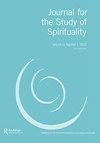儿童精神智力的发展:拉脱维亚心理教育干预的概念和程序层面
IF 0.8
0 RELIGION
引用次数: 0
摘要
灵性是一个广泛而多维的概念,而灵性智能(SI)是个体心理健康和社会功能的重要先决条件。本文从理论上构建了拉脱维亚小学生(7-10岁)科学探究能力发展的心理教学干预(PPI)计划,描述了该计划的概念和程序原则。根据文献,PPI被认为是最有效的教学形式,结合到学习过程中,可以促进儿童在各个领域的快速发展。本文介绍了科学探究的概念,并对儿童科学探究的理论模型进行了实证。讨论了干预方案的类型和功能;制定PPI的主要条件;并反思用于发展科学探究的程序的内容、结构和方法。描述了个人指数的程序维度和教师为实施给定计划所做的准备。希望本研究及其后续研究能够启发其他国家将个人指数纳入教育体系。本文章由计算机程序翻译,如有差异,请以英文原文为准。
The development of children’s spiritual intelligence: Conceptual and procedural dimensions of a psycho-pedagogical intervention in Latvia
ABSTRACT Spirituality is a broad and multidimensional concept, while spiritual intelligence (SI) is an important prerequisite for the psychological health and social functioning of the individual. This article theoretically frames a psycho-pedagogical intervention (PPI) program for the development of SI in primary school students (age 7–10) in Latvia, describing the conceptual and procedural principles of the program. According to the literature, PPI is considered the most efficient form of instruction that, integrated into the learning process, may facilitate the rapid development of children in various fields. The article introduces the concept of SI and substantiates the theoretical model of SI in children. It discusses the types and functions of intervention programs; the main conditions for elaborating PPI; and reflects on the content, structure, and methods of a program applied to develop SI. The procedural dimensions of the PPI and the preparation of teachers to implement a given program are described. It is hoped that this study and its continuation may inspire the integration of the PPI into educational systems in other countries.
求助全文
通过发布文献求助,成功后即可免费获取论文全文。
去求助
来源期刊

Journal for the Study of Spirituality
RELIGION-
CiteScore
2.50
自引率
7.10%
发文量
25
期刊介绍:
Journal for the Study of Spirituality is a peer-reviewed journal which creates a unique interdisciplinary, inter-professional and cross-cultural forum where researchers, scholars and others engaged in the study and practices of spirituality can share and debate the research, knowledge, wisdom and insight associated with spirituality and contemporary spirituality studies. The British Association for the Study of Spirituality (BASS) organises a biennial international conference and welcomes enquiries about membership from those interested in the study of spirituality in the UK and worldwide. The journal is concerned with what spirituality means, and how it is expressed, in individuals’ lives and communities and in professional practice settings; and with the impact and implications of spirituality in, and on, social policy, organizational practices and personal and professional development. The journal recognises that spirituality and spiritual values can be expressed and studied in secular contexts, including in scientific and professional practice settings, as well as within faith and wisdom traditions. Thus, Journal for the Study of Spirituality particularly welcomes contributions that: identify new agendas for research into spirituality within and across subject disciplines and professions; explore different epistemological and methodological approaches to the study of spirituality; introduce comparative perspectives and insights drawn from different cultures and/or professional practice settings; aim to apply and develop sustained reflection, investigation and critique in relation to spirituality and spiritual practices; critically examine the values and presuppositions underpinning different forms of spirituality and spiritual practices; incorporate different forms of writing and expressions of spirituality.
 求助内容:
求助内容: 应助结果提醒方式:
应助结果提醒方式:


